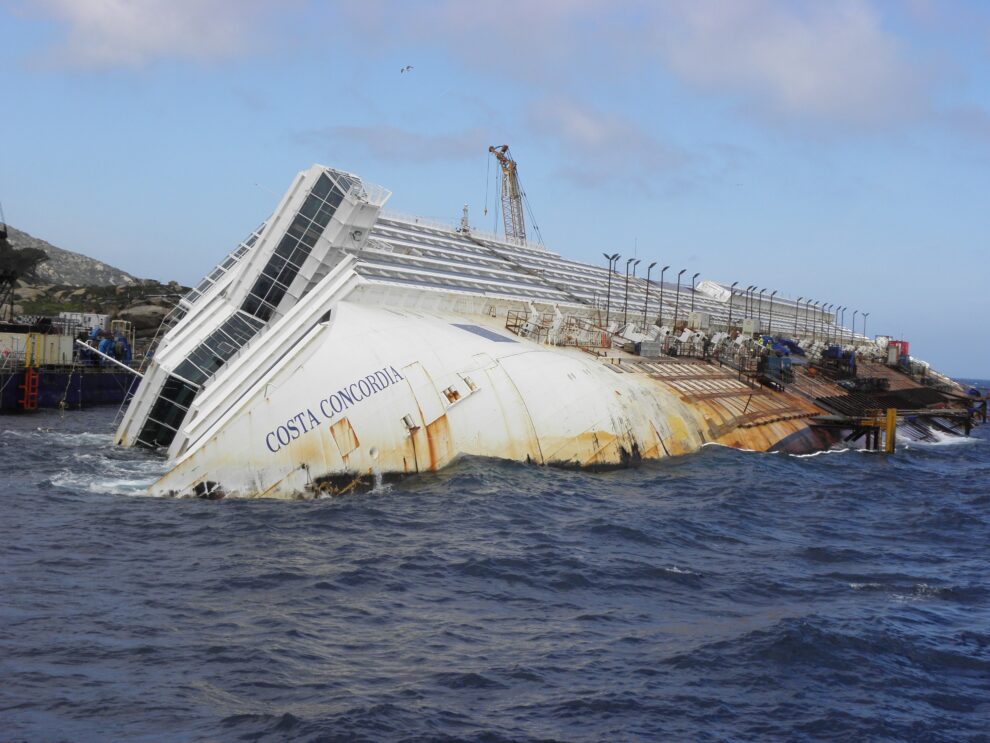Guilt and Expiation in Business
Lesezeit: 11 Min.
18.05.2021
Litigation Funders see themselves gaining Ground
By Peter Niggl
Lined up in a row, they would stretch one and a half times around the globe: The 13.36 million cars that were recalled worldwide in the first half of this year alone (period covered from January 1st to July 13th). The figure stems from statistics compiled by market analyst Finance in Bold (Finbold). On this ranking list, which is headed by the Japanese automotive giant Toyota with almost four million recalls, VW, as the first German company in the listing, is found in ninth place with 16,090 recalls. That seems comparatively insignificant. Is everything fine for the German car manufacturers? The game with numbers has its drawbacks. A major recall by BMW, which “has been a stressful experience for car buyers and manufacturers around the globe for many years” (Merkur.de), is not even included in the list. Nor do the statistics include Daimler’s recall of almost 300,000 cars due to fire hazards. Regardless of the confusing numbers, it can at least be said that the automotive industry is undisputedly in pole position when it comes to recalling defective products.
Product recalls can be seen as synonymous for a general trend – and that trend is called liability. Underlying this is a complex web of claims for damages and other compensation payments. The sums involved in this area are constantly rising. This has an impact on our legal system. As far as compensation is concerned, the focus is still primarily on the USA, where “astronomical compensation sums” are repeatedly imposed by the courts or agreed in settlements. Occasionally, German law firms consider the possibility of conducting proceedings before a US court. To loosely quote Goethe: “He, who does not learn to obey the laws must leave the region, where they apply.”
Taking a Look at the USA
That’s why it’s worth taking a closer look across the Atlantic, because the practices pursued there could sooner or later also find their way into our country. Although assuming that rulings such as the one against the cigarette manufacturer Philip Morris – where the widow of a chain smoker got an equivalent amount of 60 million euros many years ago, cannot to be expected from German courts in the near future. The liability risks for companies, however, are increasing. A new study entitled “5 Liability Risk Trends” by Allianz Global Corporate & Specialty (AGCS) shows five new risk trends for which companies could be held liable by third parties.
Five New Risk Trends in Corporate Liability.
A look at the USA is also appropriate because legislation there allows for liability to be imposed on companies that merely do business in the United States. According to the Allianz Major Clients Division AGCS, there were 74 settlements in the total amount of $2 billion and four mega-settlements amounting to more than $100 million, in the United States during the past year. That was 45 percent of all “settlement dollars”, accumulated in just five percent of all cases. The study further revealed that the average amount per case increased by about $1 million to $1.5 million per year from 2001 to 2014. In the years 2015 to 2017 there was an increase of $2 million to $2.5 million per year, and finally in the years 2018 and 2019, the increase amounted to nearly $4 million per year.
Easier Organization for Plaintiffs
Various factors are cited as the cause of the rising number of recalls and other claims for damages. For one thing, more complex technologies and processes are more error-prone; on the other hand, the increased performance pressure and the associated time pressure, combined with a decline in due diligence during testing, also increases the risk of defects, as does the outsourcing of parts of the production. However, it should not be underestimated that the World Wide Web has rapidly increased the possibilities for parties who sustained the damage to quickly communicate with each other for a joint approach. Numerous Internet platforms offer their services – surely not entirely selfless – as base stations for this.
The term “social inflation” has been used for some time, but it is becoming more and more significant and is considered a widespread phenomenon, especially in the United States. It includes, as defined by Allianz, “class action lawsuits and significant compensation payments for parties who incurred damages; expensive recalls in the automotive and food industries; damages caused by protests and riots; and rising liability risks for environmental or health damage.”
In legal disputes, litigation funders have become more and more important in the 2000s. In Germany, these financial service providers use the legal particulars, which, to a great extent, prohibit lawyers from offering and charging for their services on a “profit-sharing” basis. As a result, complex proceedings were and still often are not lucrative enough for lawyers and sometimes could not be managed financially by the individual parties to the proceedings.
The Sums in Liability have increased
The inclusion of litigation financiers is fundamentally changing the situation. Dr. Arndt Eversberg, who, since spring 2012, has been managing Omni Bridgeway, today’s world leading litigation financier in Germany, Austria and Switzerland, foresees pronounced trends. In an interview with SECURITY INSIGHT, he confirms that “in compensation rulings, the sums have increased significantly.” In his opinion, however, this is more of a marginal area. “In the case of corporate liability, the sums have apparently also increased, which is also due to the fact that different and more lawsuits are being filed. And in the process, other sums are being demanded,” says Eversberg, who has been active in litigation financing as a lawyer for two decades.
Failure to prove cause-and-effect causation.
He emphasizes that his company has no desire to play games. Business actions are based on a careful consideration of costs and benefits. The question regarding of the chances of success for actions of compensation by the infected people relating to the Corona hotspot Ischgl, is answered cautiously by Eversberg. “The conflict situation between the Austrian state of Tyrol and the hotel operators in Ischgl, as well as the question of who said what and when, is very unclear. The prospects of legal success in an action for compensation do therefore not exist sufficiently.”
The dimension of such litigation financing quickly becomes clear when one considers the legal dispute with VW. Omni Bridgeway finances around one hundred lawsuits filed by customers against Volkswagen in Germany and assists more than ten thousand VW buyers in Austria in cooperation with the local consumer advice center (VKI).
But VW is also caught up by its history on other issues and has to respond to dark chapters in its factory history. Since VW’s plant security collaborated with the regime during the period of military dictatorship in Brazil between 1964 and 1985, former employees of the car manufacturer who were victims of the regime are to be compensated with around 2.6 million euros. This was announced in September of this year.
For Arndt Eversberg, the balance of power between the aggrieved party and the party responsible always proves to be a battle of David against Goliath in court “and here we are on the side of David.”
Kafkaesque Travesty of Justice
The Kaprun accident has a highly tragic and at the same time bizarre repercussion. After 155 people had lost their lives in smoke and fire 20 years ago in the glacier cableway in the Austrian winter sports resort, the household appliance manufacturer Fakir, based in Vaihingen in Württemberg, was involved in an almost Kafkaesque travesty of justice regarding the liability issue. A fan heater of this brand had been installed in the cableway and was considered to be the cause of the fire. Fakir was convicted, although the restriction in the operating instructions was clear: “Device may not be installed in vehicles and operated there.” It took 10 years for the prosecutor’s office to stop the investigation procedures against the managers. The operators of the cableway and the representatives of the public supervision kept “their noses clean” from the very beginning. This was legally endorsed.
The Kaprun case shows certain similarities to the legal handling of the liability issue of the crash of a Germanwings plane in France in March 2015. The lawsuit filed by the surviving relatives of the 150 fatalities against Lufthansa was rejected by the Essen Regional Court in July of this year. The court stated that Lufthansa, Germanwings’ mother company, and Lufthansa’s flight school in the U.S., which was also a defendant, were the wrong addressees of the lawsuit. According to the opinion of the court’s 16th Civil Chamber, neither of them was responsible for the aviation medical examination of pilot Andreas L. that brought down the plane. Instead, the judge stated that the Federal Aviation Authority rather than Lufthansa should be held responsible. The Berlin professor and expert in aviation law, Elmar Giemulla, who is representing the plaintiffs, shows little understanding for this legal “trick”. He stated to SECURITY INSIGHT, “This ruling has surprised everyone, even the Federal Aviation Authority. I am sure it will not be of lasting nature.”
867-million-euro lawsuit against truck cartel.
30 Years of Proceedings
Litigation financiers have made it their business to counteract such dodges. One of their main tasks is to help plaintiffs or defendants get through extensively prolonged proceedings. Although overlong court proceedings are no longer legally permissible in Germany, loopholes for delaying court decisions can still be found. Jürgen Gräßer, a businessman from the Saarland, spent around three decades fighting for the construction of a supermarket in the state capital of Saarbrücken. He expended millions on it, without success. All legal efforts for compensation failed in German courts. In the end, he was able to get 45,000 euros in compensation before the European Court of Human Rights (ECHR) in 2006. His success before the ECtHR was also the signal for new regulations on legal options against overlong court proceedings.
Using quick settlement offers, perpetrators of the damage sometimes want to stay on top of the game in order to prevent lawsuits. Two thirds of the survivors of the accident involving the Italian cruise ship “Costa Concordia” on January 13th , 2012 accepted a lump-sum compensation of 11,000 euros shortly after the accident. This way, the shipping company avoided lawsuits for damages and compensation. According to press reports, only ten percent of the 3050 passengers affected had filed lawsuits. The lump-sum compensation applies to all uninjured survivors of the accident.
Focusing on Cartels
When asked in which areas the largest lawsuits for damages are being conducted in Germany, Eversberg mentions proceedings for damages under cartel law. However, in February of this year, a collection agency’s claim for damages from various truck manufacturers, including Daimler and MAN, on the grounds of illegal price agreements was rejected by the Munich Regional Court. The sum claimed amounted to 867 million euros. Deutsche Bahn, the German Armed Forces and around 200 freight forwarding companies also came forward with a claim that could cost Europe’s largest truck manufacturers 385 million euros in damages for allegedly inflated prices. Court and legal fees are also based on these sums. This results in dimensions that small and medium-sized aggrieved companies can often only afford with great effort and at considerable risk. However, from A for elevator cartel to Z for sugar cartel, many anti-competitive agreements have now found their way into court – not least thanks to the support of litigation financiers – and the companies concerned are facing payments of the amount of two to three million.
Pandemic brings additional Difficulties
Underlying this is a bizarre legal issue, which is illustrated on the website Gesundheit-Medikamente.com: “Patients’ rights are increasingly being strengthened in Germany. If you look at the number of lawsuits against doctors for malpractice alone, you can see that German patients are putting up with less.. Approximately 40,000 lawsuits are filed in this area alone every year. On the other hand, not a single word is heard from Germany about successful lawsuits against pharmaceutical companies. This is mainly due to a single, albeit comprehensive, reason: The lack of proof of cause-effect causality.”
A plea that goes far beyond the medical aspect will be the pandemic in the very near future. Arndt Eversberg also sees an impact on the legal processes in court. “It is already foreseeable that plaintiffs will be delayed in getting their money. That can mean significant economic difficulties for some and will worsen an already tight liquidity situation.”
Lawsuits against government measures have already been successful; the question will be whether the announced compensation claims will also be successful. There is no doubt that a whole new field of liability issues is opening up. To what extent will a hide-and-seek game of force majeure then be legally effective? A proactive business strategy will have to deal with all the imponderables.
Caption: The shipping company of the wrecked Costa Concordia was interested in a quick settlement.
Foto: pixabay


